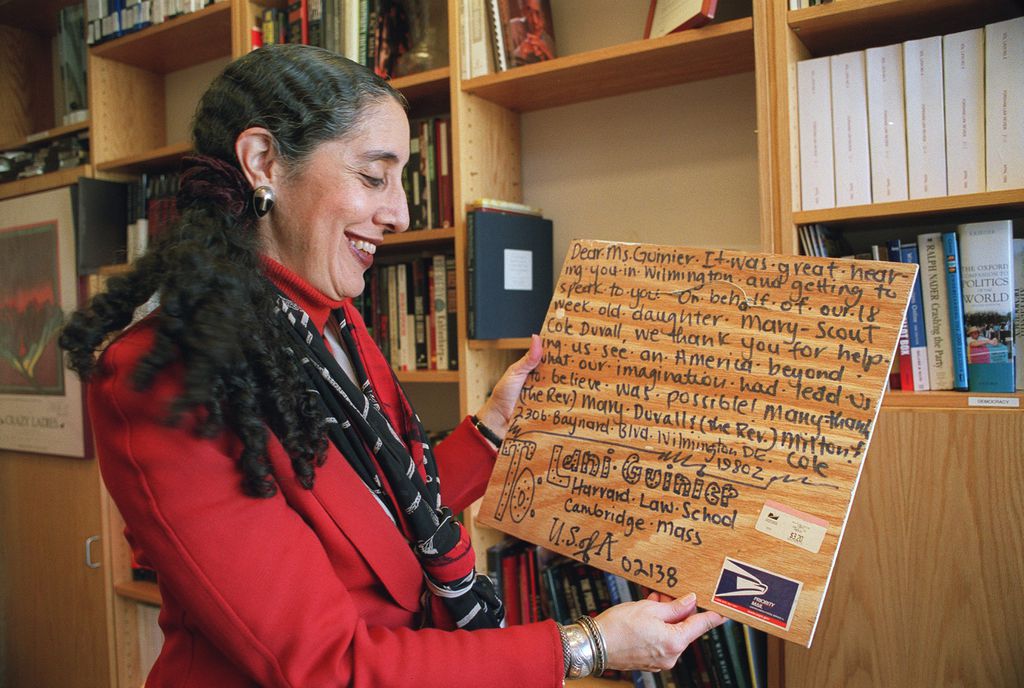Elite Media Remember Lani Guinier as 'Embattled'—and Forget How They Battled Her
Janine Jackson

 The Boston Globe (1/8/22) framed its obituary for Lani Guinier around her teaching career and civil rights advocacy.
"Harvard Law Professor Guinier Dies at 71; Known for Civil Rights Work, Public Service," was the headline on the Boston Globe's January 8 obituary for teacher, voting rights advocate and author Lani Guinier. The story cited Harvard Law School dean John Manning, saying that Guinier "changed our understanding of democracy—of why and how the voices of the historically underrepresented must be heard and what it takes to have a meaningful right to vote." New York's Daily News (1/7/22) had "Lani Guinier, Civil Rights Attorney, Voting Rights Advocate, Dies at 71."
In big national media, it was different: The New York Times story (1/7/22) was headlined "Lani Guinier, Legal Scholar at the Center of Controversy, Dies at 71," while the Washington Post (1/9/22) went with "Lani Guinier, Law Professor and Embattled Justice Department Nominee, Dies at 71."
For some elite media, what's most important—about an event, a country or a human being—is whatever media have chosen to center, generally just the relationship to the official power that for them is the source of all meaning.
In Guinier's case, it's the fact that she was nominated by Bill Clinton to lead the Justice Department's Civil Rights Division, but when conservative activists, upset about Supreme Court fights over Robert Bork and Clarence Thomas, campaigned to attack her nomination by transparently distorting her opinions (Extra!, 7–8/93), Clinton dropped her like a hot rock. That is the "takeaway" from Guinier's life and work.
 The New York Times (1/7/22) stressed Guinier's role as the "center of controversy.
That corporate media center their own perspective does not mean they acknowledge their own role. No; the Times can report that Republican assertions that Guinier championed affirmative action quotas were baseless, and that many of her criticisms around, e.g., redistricting have since become "mainstream." But don't expect them to remember that on the day her nomination was withdrawn, the paper ran an op-ed (6/3/93) premised on the false idea that she was in favor of "segregating Black voters in Black-majority districts."
Or that when the paper finally devoted an article (6/4/93) to her actual views, rather than to the political firestorm that raged around them, after the nomination had already been killed, there still was not a single quote from any of her writings. “Almost everyone is relying on reconstructions by journalists and partisans, injecting further distortions into the process,” reporter David Margolick wrote—with that ”everyone,” as he acknowledged in an interview with FAIR, including himself.
The Washington Post (1/9/22) can talk about how "conservative activists" seized on articles whose actual content they neglected to cite, in order to discredit Guinier—without even pretending to explore how some of their own leading lights, like Lally Weymouth (5/25/93), had attacked Guinier's support for affirmative action while advancing their own support for protection for racial minorities—when they're white South Africans (Washington Post, 7/15/93).
|
